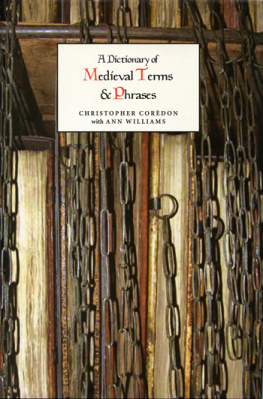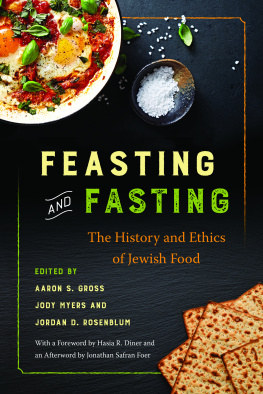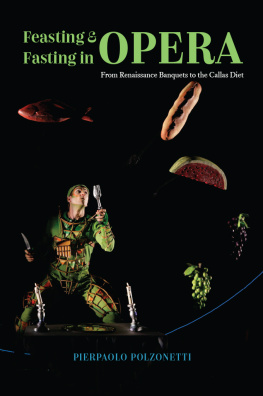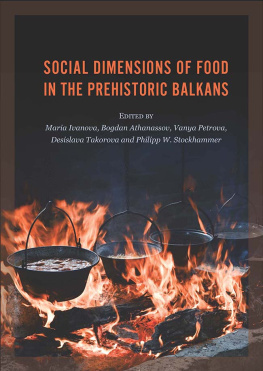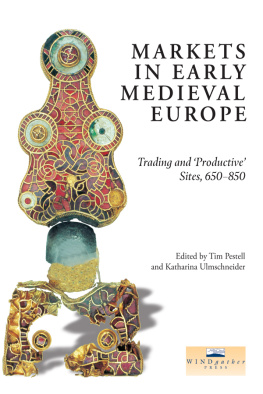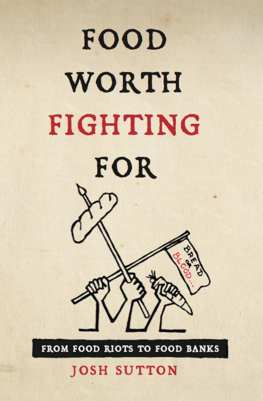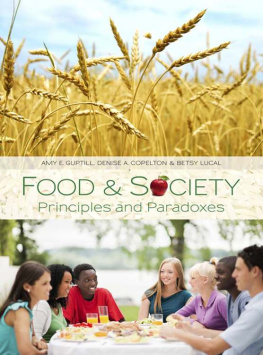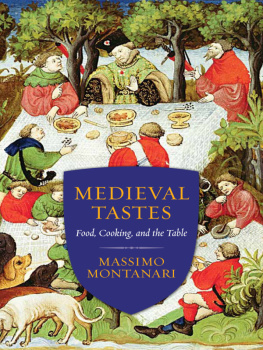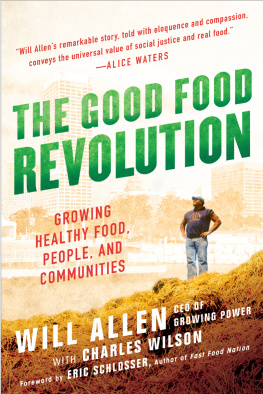
Anglo-Saxon Studies 22
FOOD, EATING AND IDENTITY
IN EARLY MEDIEVAL ENGLAND
Food in the Middle Ages usually evokes images of feasting, speeches, and special occasions, even though most evidence of food culture consists of fragments of ordinary things such as knives, cooking pots, and grinding stones, which are rarely mentioned by contemporary writers. This book puts daily life and its objects at the centre of the food world. It brings together archaeological and textual evidence to show how words and implements associated with food contributed to social identity at all levels of Anglo-Saxon society. It also looks at the networks which connected fields to kitchens and linked rural centres to trading sites. Fasting, redesigned field systems, and the place of fish in the diet are examined in a wide-ranging, interdisciplinary inquiry into the power of food to reveal social complexity.
Anglo-Saxon Studies
ISSN 1475-2468
General Editors
John Hines
Catherine Cubitt
Anglo-Saxon Studies aims to provide a forum for the best scholarship on the Anglo-Saxon peoples in the period from the end of Roman Britain to the Norman Conquest, including comparative studies involving adjacent populations and periods; both new research and major re-assessments of central topics are welcomed.
Books in the series may be based in any one of the principal disciplines of archaeology, art history, history, language and literature, and inter- or multi-disciplinary studies are encouraged.
Proposals or enquiries may be sent directly to the editors or the publisher at the addresses given below; all submissions will receive prompt and informed consideration.
Professor John Hines, School of History and Archaeology, Cardiff University, Colum Drive, Cardiff, Wales, UK CF10 3EU
Professor Catherine Cubitt, Centre for Medieval Studies, University of York, The Kings Manor, York, England, UK YO1 7EP
Boydell & Brewer, PO Box 9, Woodbridge, Suffolk, England, UK IP12 3DF
Previously published volumes in the series are listed at the back of this book

Copyright Allen J. Frantzen 2014
All Rights Reserved. Except as permitted under current legislation no part of this work may be photocopied, stored in a retrieval system, published, performed in public, adapted, broadcast, transmitted, recorded or reproduced in any form or by any means, without the prior permission of the copyright owner
The right of Allen J. Frantzen to be identified as the author of this work has been asserted in accordance with sections 77 and 78 of the Copyright, Designs and Patents Act 1988
First published 2014
This edition published 2014
The Boydell Press, Woodbridge
ISBN 978-1-84383-908-8 (Hardcover)
ISBN 978-1-78204-321-8 (eBook)
The Boydell Press is an imprint of Boydell & Brewer Ltd
PO Box 9, Woodbridge, Suffolk IP12 3DF, UK
and of Boydell & Brewer Inc.
668 Mount Hope Ave, Rochester, NY 14620-2731, USA
website: www.boydellandbrewer.com
A CIP catalogue record for this book is available from the British Library
The publisher has no responsibility for the continued existence or accuracy of URLs for external or third-party internet websites referred to in this book, and does not guarantee that any content on such websites is, or will remain, accurate or appropriate.
For George R. Paterson
Contents
Illustrations
Acknowledgments
In 2005 I heard Chris Loveluck read a paper on feasting that ranged from Anglo-Saxon calendar illustrations to dolphin bones found at a site in North Lincolnshire called Flixborough, a name I knew from no Anglo-Saxon text. Archaeology had evidently changed since I had last struggled through essays about shield bosses and the complexities of dating them. A few weeks later I visited Lovelucks site in Denmark. I troweled through sandy soil a half inch at a time, hoping something would turn up, a bit of bone or a piece of pottery. At the end of the first day we had nothing but shifted sand and aching backs to show for our labor. Although wet, cold, and unpromising, that experience was a good introduction to archaeology and to the distance between literary history and the material record of the early Middle Ages. That is where this inquiry into food, eating, and identity began.
My thanks to those who have read parts of this project and helped me at various stages: Renata Bauer, Graham Caie, Andrew Donnelly, James Driscoll, Jennifer Frey, Chris Grubbs, Stacy Klein, Christina Lee, Shannon Lewis-Simpson, Michael Mason, Leonard Niedorf, and William Schipper. I am grateful for the kind cooperation of Rose Nicholson, North Lincolnshire Museums Service; Lesley Collett and Christine Kyriacou, York Archaeological Trust; and D. H. Evans, Humber Archaeology. I wish to thank Joyce Wexler, Department of English, Loyola University Chicago, and Loyolas Office of Research Services for support. At Boydell & Brewer, Caroline Palmer, Rohais Haughton, Rob Kinsey, and Rosie Pearce were engaged and helpful at every stage, and Faith Eales was a marvelous copy editor. I am especially grateful to four scholar-teachers who have been generous with their time and talent. Chris Loveluck and John Hines have opened new dimensions of Anglo-Saxon material and textual culture to me. I owe my interest in archaeology to them and to Gareth Davies and Edward Oakley, and to each my warm thanks.
Abbreviations and Citations
ASP | Frantzen, ed., The Anglo-Saxon Penitentials |
ASPR | Anglo-Saxon Poetic Records |
BAR | British Archaeological Reports |
BEASE | Lapidge et al., eds., Blackwell Encyclopaedia of Anglo-Saxon England |
CBA | Council for British Archaeology |
CED | Haddan and Stubbs, eds., Councils and Ecclesiastical Documents |
DOE | Cameron et al., eds., Dictionary of Old English |
DOEWC | Healey, ed., Dictionary of Old English Web Corpus |
EETS | Early English Text Society |
EHD | Whitelock, ed., English Historical Documents, vol. 1 |
GDA | Liebermann, ed., Die Gesetze der Angelsachsen, vol. 3 |
LEEK | Attenborough, ed. and trans., The Laws of the Earliest English Kings |
LKE | Robertson, ed. and trans., The Laws of the Kings of England |
MEL | Wormald, The Making of English Law |
MHP | McNeill and Gamer, trans., Medieval Handbooks of Penance |
OE | Old English |
OEC | OE Canons of Theodore (penitential) |
OED | Oxford English Dictionary |
OEH | OE Handbook (penitential) |
OEI | OE Introduction (penitential) |
OEP | OE Penitential (penitential) |
OES |
Next page
